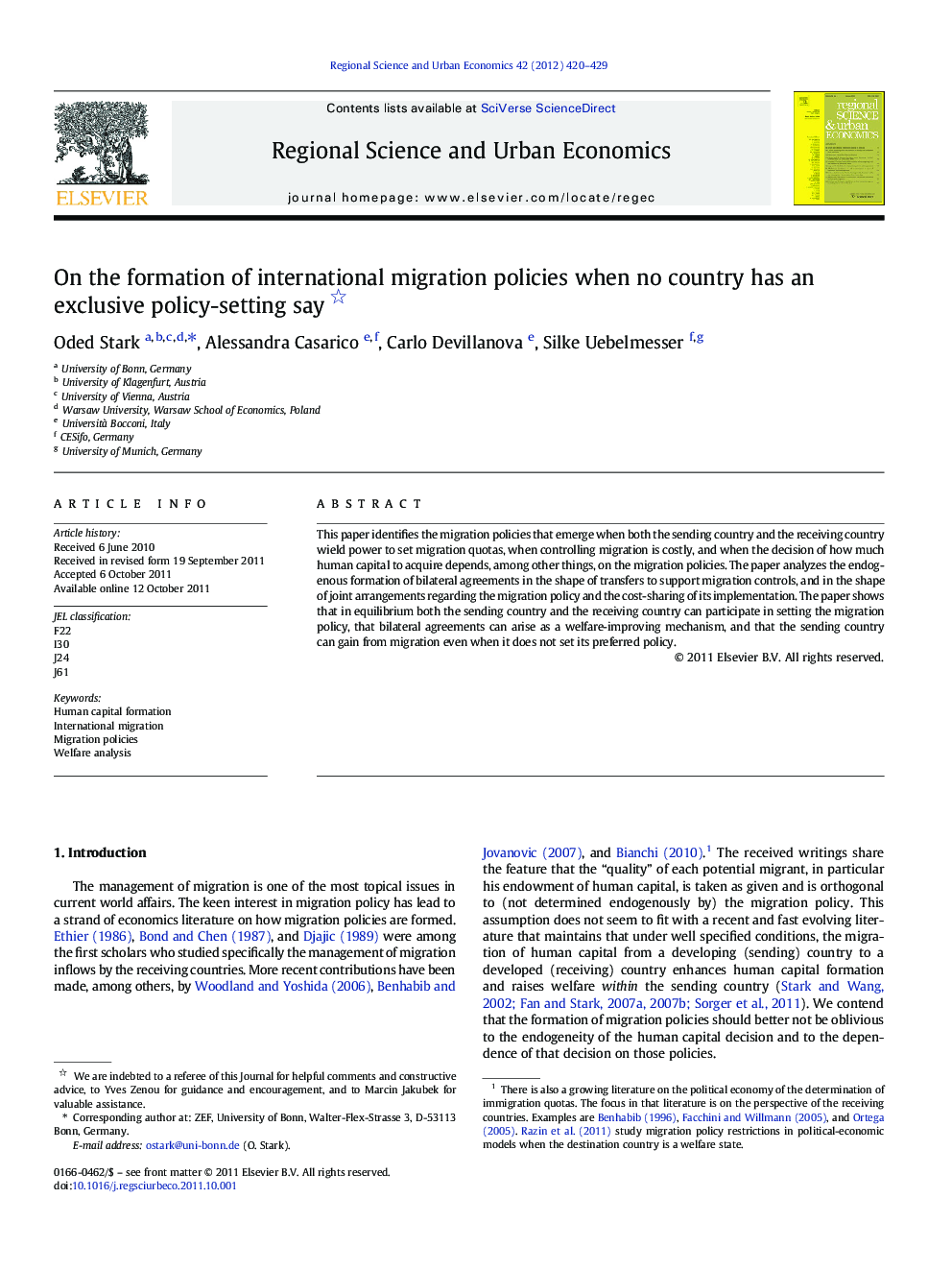| Article ID | Journal | Published Year | Pages | File Type |
|---|---|---|---|---|
| 983756 | Regional Science and Urban Economics | 2012 | 10 Pages |
This paper identifies the migration policies that emerge when both the sending country and the receiving country wield power to set migration quotas, when controlling migration is costly, and when the decision of how much human capital to acquire depends, among other things, on the migration policies. The paper analyzes the endogenous formation of bilateral agreements in the shape of transfers to support migration controls, and in the shape of joint arrangements regarding the migration policy and the cost-sharing of its implementation. The paper shows that in equilibrium both the sending country and the receiving country can participate in setting the migration policy, that bilateral agreements can arise as a welfare-improving mechanism, and that the sending country can gain from migration even when it does not set its preferred policy.
